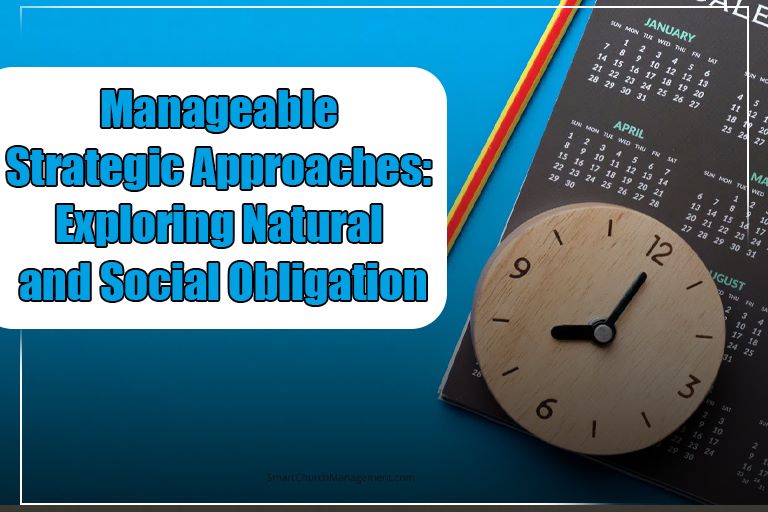In a period of expanding ecological cognizance and social mindfulness, supportable strategic policies have arisen as a critical need for organizations around the world. As associations perceive the interconnectedness between their tasks and the prosperity of the planet and society, they are going to proactive lengths to incorporate ecological and social obligations into their business procedures. This article investigates the meaning of reasonable practices, features the advantages for organizations, and gives experiences on how organizations can explore the perplexing scene of natural and social obligation.
- Environmental Stewardship:
Supportable strategic policies focus on the protection and rebuilding of the climate. By decreasing fossil fuel byproducts, limiting waste age, preserving assets, and embracing sustainable power sources, organizations can relieve their effect on the climate and add to a more maintainable future.
- Social Obligation:
Organizations play a critical part to play in resolving social issues and advancing civil rights. By embracing maintainable practices, organizations can guarantee fair work rehearses, support neighborhood networks, advance variety and consideration, and maintain basic freedoms all through their tasks and supply chains.
- Reputation and Brand Upgrade:
Embracing maintainable practices constructs a positive standing and upgrades brand esteem. Shoppers are progressively aware of their buying decisions, leaning toward the earth and socially dependable organizations. By lining up with feasible qualities, organizations can draw in a faithful client base, separate themselves from contenders, and gain an upper hand.
- Innovation and Flexibility:
Embracing manageable practices empowers advancement and imagination inside associations. By looking for harmless ecosystem choices, organizations can foster new items, administrations, and plans of action that meet the advancing requirements of clients while lessening ecological effects. This cultivates long-haul flexibility and versatility in an always-changing business scene.
- Set Clear Objectives:
Lay out unambiguous, quantifiable, achievable, important, and time-bound (Brilliant) objectives for manageability drives. These objectives ought to line up with the organization's vision and values and give a guide to execution and progress following.
- Conduct a Materiality Evaluation:
Recognize the main ecological and social issues that apply to the organization's business, partners, and activities. A materiality evaluation focuses on endeavors and dispenses assets.
- Engage Partners:
Include interior and outer partners in the manageability venture. This incorporates representatives, clients, providers, financial backers, and nearby networks. Cooperation and exchange with partners can cultivate shared liability and empower the organization to address a more extensive scope of maintainability issues.
- Integrate Maintainability into Activities:
Insert maintainability contemplations into all parts of the business, including acquisition, creation, dispersion, and waste administration. Execute economical store network rehearses, for example, capable of obtaining and provider reviews, to guarantee moral and harmless to the ecosystem rehearses all through the worth chain.
- Transparent Revealing:
Impart manageability endeavors and progress through normal and straightforward detailing. Utilize universally perceived structures, like the Worldwide Detailing Drive (GRI) or Supportability Bookkeeping Norms Board (SASB), to give significant and practically identical information to partners.
- Continuous Improvement:
Manageable practices require a continuous obligation to progress. Consistently assess execution, recognize regions for an upgrade, and carry out techniques to additionally lessen ecological effects and improve social obligation.
- Regulatory Consistency:
Complying with feasible strategic policies guarantees consistency with natural and social guidelines. By remaining in front of administrative prerequisites, organizations can stay away from punishments, lawful issues, and reputational harm that might emerge from rebelliousness.
- Supply Chain Straightforwardness:
Supportable practices reach out past an organization's inward tasks and into its store network. By advancing straightforwardness and detectability all through the store network, organizations can guarantee capable obtaining, fair work rehearses, and moral treatment of laborers in all phases of creation.
- Collaboration and Organizations:
Participating in coordinated efforts and associations with similar associations, NGOs, and government organizations can enhance the effect of practical drives. By pooling assets, sharing information, and working by and large, organizations can handle complex natural and social difficulties all the more really.
- Employee Commitment:
Effectively including workers in supportability drives can make everyone feel better, cultivate a feeling of direction, and further develop consistency standards. Support worker cooperation through preparing programs, maintainability panels, and acknowledgment of eco-accommodating practices inside the working environment.
- Life Cycle Evaluations:
Directing life cycle appraisals helps organizations recognize and address the ecological effect of their items or administrations from unrefined substance extraction to removal. This all-encompassing methodology permits organizations to settle on informed choices concerning item plans, material determination, and waste administration, accordingly limiting their general biological impression.
- Circular Economy Practices:
Embrace the standards of the roundabout economy by zeroing in on asset effectiveness, item reuse, and reusing. Execute methodologies, for example, item reclaims programs, remanufacturing, and the utilization of reused materials to limit squandering and augment asset usage.
- Community Commitment:
Drawing in with nearby networks is critical for manageable strategic policies. Effectively add to local area improvement through drives like chipping in, schooling, and backing for nearby organizations. This forms generosity, cultivates long-haul connections, and guarantees that the organization's tasks line up with the local area's necessities and values.
- Investment in Innovative work:
Allot assets to innovative work endeavors that drive development in supportability. This could include investigating elective materials, growing clean advancements, or finding more productive cycles that diminish natural effects while satisfying client needs.
- Long-term Arranging:
Maintainability requires a drawn-out viewpoint. Integrate reasonable practices into key preparation and dynamic cycles. This guarantees that ecological and social contemplations are fundamental parts of the organization's drawn-out vision and development methodology.
- Collaboration with Clients:
Draw in with clients to figure out their supportability assumptions and inclinations. Integrate client criticism into item improvement and showcasing techniques, subsequently making items and administrations that line up with their qualities and add to a more supportable way of life.
Conclusion:
Manageable strategic policies have developed from being a specialty idea to a basic for associations around the world. Organizations that embrace natural and social obligation add to a more practical future as well as gain the upper hand regarding notoriety, cost investment funds, and development. By defining clear objectives, drawing in partners, coordinating supportability into tasks, and keeping up with straightforward detailing, organizations can explore the intricacies of maintainable practices and establish a positive effect on the climate and society. Thusly, they become impetuses for change and assume a fundamental part in molding an additional feasible and fair world.
Read more.. Moral Strategic Approaches: The Way to Long haul Achievement Read more.. Embracing Moderation: Living a Less Complex and Seriously Satisfying Life
